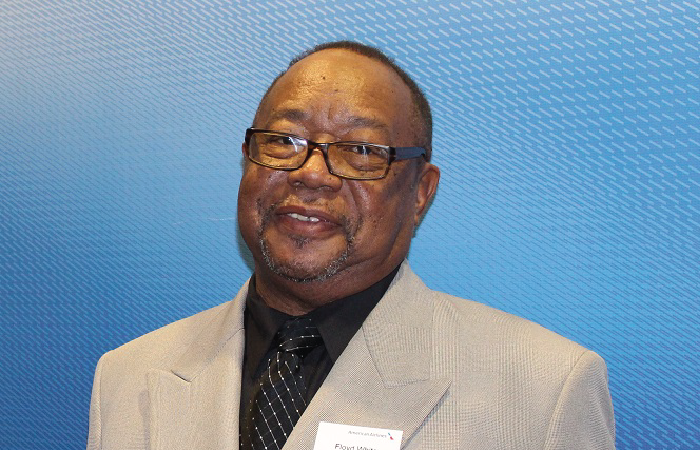Living the dream: The impact of STEM on Floyd White

Floyd White used to shout at airplanes from his grandmother's back porch as they flew over her house. He dreamed about what it would be like to be in an airplane, let alone fly one.
Dreaming about those airplanes was an escape for Floyd. At the age of five, his father left their family, and when he was 14, his mother passed away. He and his four siblings were sent to be raised by their grandmother. He did not have the finances to go to college, so he joined the United States Air Force.
Floyd started as a carpenter, but was accepted into a special program that provided training to become a flight engineer and later a flight examiner. As a result he received an education that focused on science, technology, engineering and math (commonly referred to as STEM).
Today Floyd is a CLT-based flight crew instructor for American, training pilots to fly the aircraft he used to dream of. He relies on his STEM education on a daily basis as he uses the highly technological flight simulators. And while he is a minority among those in his line of work, Floyd says, "I am hopeful in American Airlines' plan to diversify the playing field by opening more doors for African Americans and other minorities who want to advance in the areas of aviation."
Currently only 2.7 percent of pilots are black, according to research from the Equal Employment Opportunity Commission. According to the U.S. Department of Commerce, jobs in science, technology, engineering and math will grow at least 17 percent by 2018, but because of the lack of qualified workers, the U.S. will have about 1.2 million vacant STEM jobs.
Now 65, Floyd attributes his role with American to the hands-on STEM education he received in the Air Force. He speaks proudly about his childhood dreams coming true, and is featured in a Project STEM 2016 documentary, where he highlights his passion for educating minorities in STEM fields.
Floyd stars alongside students and alumni from historically black colleges and universities (HBCUs) and other minorities whose STEM education has prepared them for the global marketplace. His hope is to spur a national grassroots effort to encourage STEM education for minorities and to inspire future generations of engineers and scientists.
"I'm looking forward to paying it forward and encouraging young minority students to take an interest in STEM," Floyd says.
